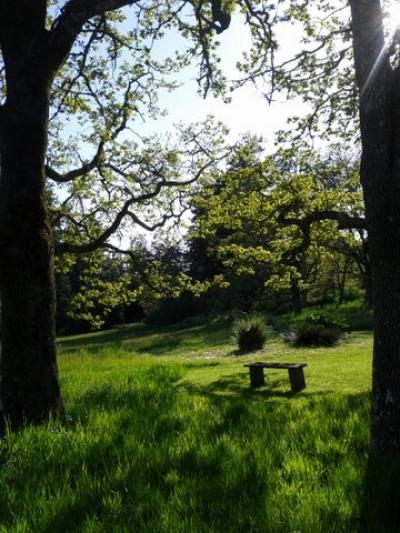Swanwick Star Issue No. 5 (2012)
A Sunday Dialogue at the Library
A discussion about “disorder” between Krishnamurti and Dr. Allan Anderson conjured up riotous street scenes of cows, donkeys, horse-carts, and cars all sharing the road in India. Nevertheless,
It is amazing how everything manages to keep moving there finding a kind of order within the disorder.
K. talked about how we must understand the movement of thought in order to understand disorder. He also mentioned the supreme role of “measurement” in Western civilization starting with the Greeks and that, although, it has a distinct role in technology and science, “measurement” as “comparison” can have no role in one’s life. In fact, comparing oneself to others may be the root of all disorder. He went on to make the remarkable statement that he had never compared himself to anyone in his life.
This theme spilled over into our dialogue and someone observed that the self is composed of a series of images which have no substance. Thus, much of our lives we are just living in a fantasy. Our emphasis seems to be largely on “I am living, painting, or writing” rather than simply on the act of “living…painting…writing…” The self, or, the ego is the most powerful drug known to humans and we seem to need some form of re-habilitation from it.
It was suggested by one of the participants that a mind that is totally silent may be the answer to this problem. However, this was questioned. Is not merely the idea or concept of such a mind akin to a blind man, who has never seen, trying to conjure up colour?
The difference is that we may have experienced periods of silence.
And, yet, if the blind man can see blackness or shades of grey, it is still far from the true experience of colour…the shared common consciousness of humans which includes the sense of self is not something we can surgically extract ourselves from…it is a fact.
Therefore, as K. pointed out we must learn to deal with actually what is. We must find a new relationship to consciousness that is not in conflict with it or creating disorder in our lives. This may involve observation without an observer.
[June 17, 2012]






